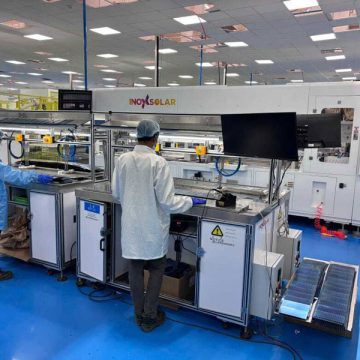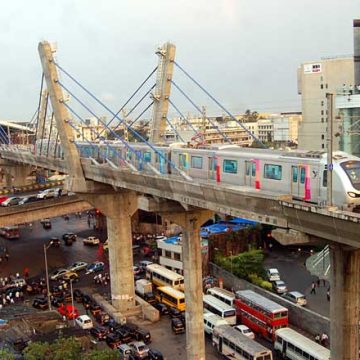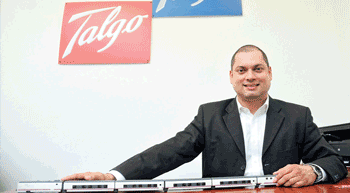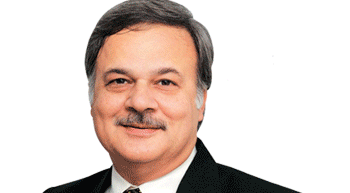A new CII-PwC report urges policy clarity, streamlined approvals, and affordable financing to scale India’s renewable energy manufacturing. With global competition intensifying, strategic capital access could define India’s leadership in the green transition. India’s ambition to become a global hub for renewable energy (RE) manufacturing is gaining momentum, but its success hinges on access to...
FlashNews:
Inox Clean Energy, RJ Corp Enter Africa’s IPP Market, Target 2.5 GW by FY2029
Best Pills for Erection: Myths, Facts, and Smart Choices
Best Pills for Erection: Audience‑Specific Guidance with Safety Disclaimers
DIAL Launches Family@DEL: First Family‑Centric Travel Initiative at an Indian Airport
India’s SDHI Lands Landmark Oman Defence Ship Deal
Air India Unveils First Line‑Fit Boeing 787‑9, Signals Bold Global Transformation in 2026
Vizhinjam Expansion Strengthens India’s Maritime Competitiveness: Sonowal
Tata Power Odisha Discoms Secure Top National Rankings for Third Consecutive Year
SDHI Secures $227 Million Chemical Tanker Deal, Revives India’s Commercial Shipbuilding
India’s Energy Transition Sets Global Pace: Pralhad Joshi at Davos
IWDC Clears ₹15 Billion Projects to Boost Green Mobility, Cargo and River Tourism
World Bank Approves $815 Million Financing for Tata Power-DGPC Dorjilung Hydropower Project in Bhutan
Indian Railways Deploys Humanoid Robot ASC ARJUN at Visakhapatnam for Smart Station Security
India’s Power Grid Crosses 500,000 Circuit Km, Marks 71.6% Growth Since 2014
India Inc Optimistic on Growth, Flags Infrastructure, Defence and Export Priorities: FICCI Survey
NHAI, Konkan Railway Ink MoU to Boost Integrated Road‑Rail Infrastructure Development
DGCA Digitises Pilot Licensing with Electronic ATPL Services to Strengthen Aviation Ecosystem
Power Minister Calls for Financially Strong Discoms to Drive India’s Energy Future
BLR Airport Launches Gate Z, India’s First Social Lounge Redefining the Airport Experience
Tag: PwC
Global investors are eyeing India’s infrastructure sector
For India, transitioning from a $2.3 trillion economy to a $30 trillion economy by 2047 will need an incremental $20 trillion in urban economic output. India’s urban transformation is both a challenge and an opportunity, finds out Rakesh Rao, during his conversation with Clara Cutajar, Global Capital Projects & Infrastructure Leader, PwC; Jennifer Tay, Asia...
People-centric approach a necessity
The development of India's Smart Cities has to be people-centric if the programme has to succeed in the long-term, a cross section of experts opined. This will entail smarter use of available resources and technologies to improve both infrastructure and service delivery in areas proposed for such development.
We are trying to make a case for open data
development and development issues are a priority. In the last few years, the efforts have been to look at what are those path-breaking innovative ways in which system strengthening can also happen.
We tend to thrive in volatile environments
We have been in business for nine years; our 10th year anniversary is in July. We always found that economic environments that are increasing or contracting are best for us. I might say it in another way. We tend to thrive in volatile environments where organizations are required to be ready for change.
With the conducive environment, investor confidence will go up
Infrastructure is the backbone of any economy. But good infrastructure development needs good planning. Lack of planning is the biggest problem. China in comparison to India has shown better planning and flexibility while executing infrastructure projects. India has lagged behind due to its political system and populist outlook.
By 2050, 60percent of India´s population will reside in towns
Western economies like Europe and the USA are already quite advanced when it comes to infrastructure development compared to the developing countries. In comparison, economies like China, India and rest of Asia are still showing high growth which would require a lot of infrastructure support to back up this growth.
Water Woes
Available water resources are not adequate for Indian states. But a comprehensive wastewater policy has not been implemented anywhere in India, and Maharashtra is a case in point.
Net Result
The hype and fanfare that has accompanied Digital India, has managed to catch the imagination of people unlike any other initiative of recent times by the federal government.
TRAILBLAZERS
A buzzing campus, enthusiastic students, a well-organised event, distinguished and exemplary speakers all made for a day´s worth of good entertainment but also important information and keen insights on infrastructure in India
- 1
- 2










